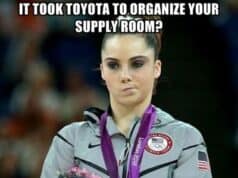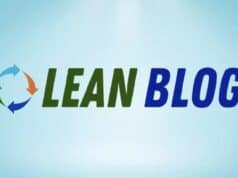On Point : American Manufacturing and Jobs
Here is a 45 minute audio program from National Public Radio, discussing the future of manufacturing, focusing on the question of “how are we going to have a rising standard of living in the U.S. with falling manufacturing employment?” The main guest is a professor of mine from MIT and the Leaders For Manufacturing Program, Don Rosenfield. No easy answers, but this show is representative of the struggle and debate that's going on right now.
Update 2/24/06: I'm not above being goaded into further comment by our cranky lean pal Bill Waddell. I'll agree there wasn't anything particulary enlightening in the show. One thing that frustrated me was how Don was really put on the spot by the liberal host and the retired-auto-worker callers.
They demanded that no individual be hurt by the shift in our economy, whether its due to companies making (dopey) decisions to chase cheap Chinese labor, or due to productivity improvements. That's not how our economy works. We can't afford to protect all individuals… so if I were Don, I would have had trouble keeping my cool while be bombarded with that socialistic attack. That's my natural crankiness coming out, Bill. :-)
While I believe we can't protect individuals from the standpoint of government relief, I still hold by the recommendation that companies marry lean efforts with a “no layoffs” pledge… only if they can grow and take their savings through hiring avoidance rather than layoffs. If companies want to be dopey, I don't think we can demand the government to protect us by closing the borders or any of the other crazy things suggested by the socialists on the NPR show.
Please scroll down (or click) to post a comment. Connect with me on LinkedIn.
Let’s work together to build a culture of continuous improvement and psychological safety. If you're a leader looking to create lasting change—not just projects—I help organizations:
- Engage people at all levels in sustainable improvement
- Shift from fear of mistakes to learning from them
- Apply Lean thinking in practical, people-centered ways
Interested in coaching or a keynote talk? Let’s start a conversation.







![What’s Your Organization’s Real Mistake Policy? [Poll]](https://www.leanblog.org/wp-content/uploads/2025/07/Lean-Blog-Post-Cover-Image-2025-07-17T085114.134-100x75.jpg)

The company I am co-oping for realizes that lean manufacturing is going to cut waste, some of that being manpower. I just attended a kaizen presentation that showed how a cell went from 13 operators to three different operating leves of 10, 9, and 8 operators. We will find other work for these extra operators, or loan them out to other departments. We won’t lay off people, but we will avoid hiring 3 new workers that we would have previously needed.
– Jay
That’s great, Jay, that they are going to make use of people. I would be careful to communicate that you’re not viewing the “people” as waste. There may have been the “waste of motion” in the old process, then after kaizen, less motion requires fewer people.
If you had people standing around, that was a management waste, the sometimes-described “8th waste” of not allowing people to work to their full potential.
That was a management problem, not a people problem.
In a Standard Work class I teach, I ask “What is the one company asset we have that increases in value over time?” I am heartened every time I hear “our employees.” Bringing SW to the discipline where team members are displaced to other value added activities is important and should be celebrated. Too often those team members feel a sense of loss at the job change and are left on the “wrong side” of the change management curve resisting or depressed about the change. In the Gold Mine by Balle’, he reminds us that “Lean is…about people.” Effective Change Management is an important aspect of Lean and we should keep a close eye on making the time to change as short as possible leaving no one behind.